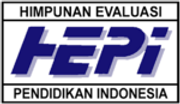Inclusive education in Islamic kindergarten, why not?
Abstract
Keywords
Full Text:
PDFReferences
Arikunto, S. (1991). Metodologi Penelitian kualitatif. Jakarta: Grafindo Persada.
Emiyati, D. (2011, November 29). Inclusive Education in Islamic Kindergarten. (Agung, Interviewer)
Kountur, R. (2005). Metode Penelitian untuk Penulisan Skripsi dan Tesis. Jakarta: PPM.
NN. (2011, November 11). Inclusive Education in Islamic Kindergarten. (Agung, Interviewer)
Rahman, H. S. (2002). Konsep Dasar Pendidikan Anak Usia Dini. Yogyakarta: PGTKI Press.
Sagala, S. (2010). Konsep dan Makna Pembelajaran: Untuk Membantu Memecahkan Problematika Belajar dan Mengajar. Bandung: Alfabeta.
Sholihah, M. N. (2011, December 6). Inclusive Education in Islamic Kindergarten. (Agung, Interviewer)
Strauss, A., & Corbin, J. (2003). Dasar-dasar Penelitian Kualitatif. Yogyakarta: Pustaka Pelajar.
Stubbs, S. (2002). Pendidikan Inklusif: Ketika hanya ada sedikit sumber, trans. Susi Septaviana R.
Suakardi. (2002). Metodologi Penelitian Pendidikan: Kompetensi dan Prakteknya. Jakarta: Bumi Aksara.
Sumiyati. (2011). PAUD Inklusi, PAUD Masa Depan. Yogyakarta: Cakrawala Institute.
Surahs. (2016). Retrieved November 29, 2017, from The Noble Qur'an: https://quran.com/80.
Zayadi, A., & Majid, A. (2005). Tadzkirah Pendidikan Agama Islam (PAI) Berdasarkan Pendekatan Kontekstual. Jakarta: RajaGrafindo Persada.
DOI: https://doi.org/10.18326/mdr.v9i2.145-162
Refbacks
- There are currently no refbacks.
Copyright (c) 2018 M. Agung Hidayatulloh

This work is licensed under a Creative Commons Attribution 4.0 International License.

This work is licensed under a Creative Commons Attribution 4.0 International License.
Program Studi Pendidikan Guru Madrasah Ibtidaiyah (PGMI)
Universitas Islam Negeri (UIN) Salatiga, Indonesia
Jl. Lingkar Salatiga Km. 2 Pulutan, Sidorejo, Kota Salatiga, Jawa Tengah 50716,
Telp. (0298) 323706 – Fax. (0298) 323433
Technical Support: jurnalmudarrisa@iainsalatiga.ac.id
P-ISSN: 2085-2061
E-ISSN: 2541-3457



